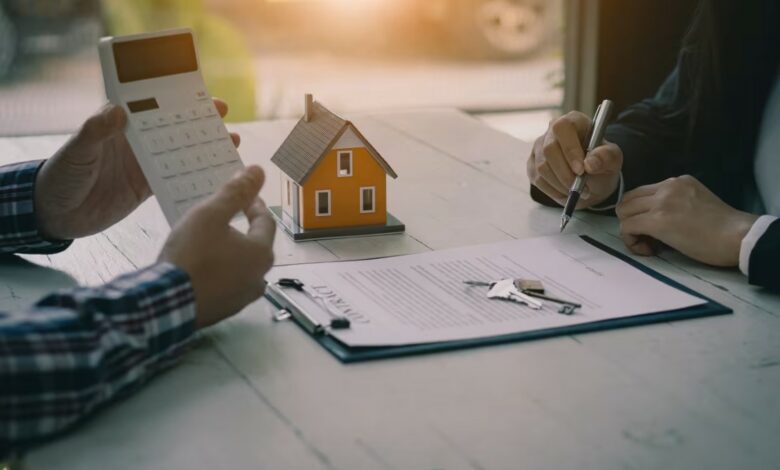
From Closing to Curb Appeal: 7 Expenses You Might Forget When Buying a Home

Buying a home is a huge financial milestone. However, it’s easy for important expenses to get lost in the hustle and bustle of this big transition. Your down payment and monthly mortgage are just a few of many expenses that new homeowners are responsible for during this time. Here are seven expenses you might forget when buying a home. Planning for these costs ahead of time will help you avoid any unpleasant surprises.
1. Closing Costs
Closing costs are all the additional fees you’ll need to pay to secure your mortgage and close the deal with your seller. Common closing costs include your loan origination fee, escrow fee, mortgage insurance, title search fees, appraisal and inspection fees, and commissions. Your exact closing costs will vary based on the terms of your deal.
Closing costs are typically equivalent to 2-6% of your total mortgage amount. These fees are due when you sign your closing documents, so be sure to factor them into your budget when shopping for a home. You may be able to negotiate your closing costs with your seller and lender to reduce the total amount you pay.
2. Homeowners Insurance
Homeowners insurance is a must when you’re buying a new property. Many lenders will even require you to have insurance to secure a mortgage. Homeowner’s insurance protects you financially in the event of an emergency. For example, if your home is damaged in a flood, your homeowner’s insurance should cover the cost of repairs and replacing your belongings.
The cost of homeowners insurance can vary widely. Factors that affect your monthly home insurance premium include your provider, location, the age and size of your home, and your financial history. Shopping around can help you find the most affordable home insurance quote for your needs.
3. Property Taxes
Property taxes are one of the biggest expenses to watch out for when buying a home for the first time. Your property taxes are determined by your city and county government based on your location and the value of your home. Some school districts also charge property taxes. Property tax schedules vary by location but are usually due biannually or quarterly.
Your property tax rates will be reassessed annually. If the value of your home goes up, so will your property taxes. Try saving a portion of your income each month for property taxes to make them more manageable. Additionally, see if your government has any property tax exemptions that you qualify for. For example, some counties have exemptions for veterans, senior citizens, and disabled homeowners.
4. Moving Costs
Once you close the deal on your new home, you’ll need to figure out how to move your belongings there from your old home. In most cases, this means renting a van or hiring movers. Both of these options come with additional costs that you’ll need to plan for.
If you’re just moving across town, you’ll likely be able to keep moving costs low. Consider enlisting friends and family to help so you don’t need to rely as much on professional movers. If you’re moving across the country, your moving costs are going to be much more substantial. Get a quote from a moving company as early as possible so you can factor these costs into your budget.
5. Upgrades
It’s rare to purchase a home that doesn’t require any upgrades to suit your needs. For example, you might want to install new floors or change the color of the walls to match your style. These upgrades will come with extra costs.
In some cases, upgrades might be necessary for your safety and comfort. If you’re buying an older home, you might need to replace the appliances or add a new security system. Keep potential upgrades in mind when shopping for a new home. A home that looks affordable at first glance could be out of your budget when factoring in the cost of the upgrades.
6. New Furniture
If your new home is significantly larger than your old one, you’ll need to buy new furniture to fill it. You might also have old furniture that you want to replace. The cost of new furniture can get expensive quickly, so be sure to budget for it ahead of time.
To save money, try looking for lightly used furniture that suits your style instead. Local antique stores, thrift stores, and online resale sites are all great places to look for hidden gems. This can help you significantly cut costs without compromising on your interior design goals.
7. Maintenance
As a renter, you could call your landlord for help when there was maintenance to be done. However, as a homeowner, you’ll need to handle the maintenance yourself. Not only will you need to schedule and oversee these maintenance appointments, but you’ll also need to pay for them.
This includes interior maintenance, like plumbing and electric repairs, as well as exterior maintenance like snow and leaf removal. Scheduling regular preventative maintenance for your home each year can help you avoid pricey emergency repairs later on.
Final Thoughts
Don’t let these unexpected expenses sneak up on you when you’re purchasing a home. If you’re planning to buy in the future, build these expenses into your budget ahead of time. That way, you’ll be able to revel in the excitement of purchasing a new home without any added financial stress.

